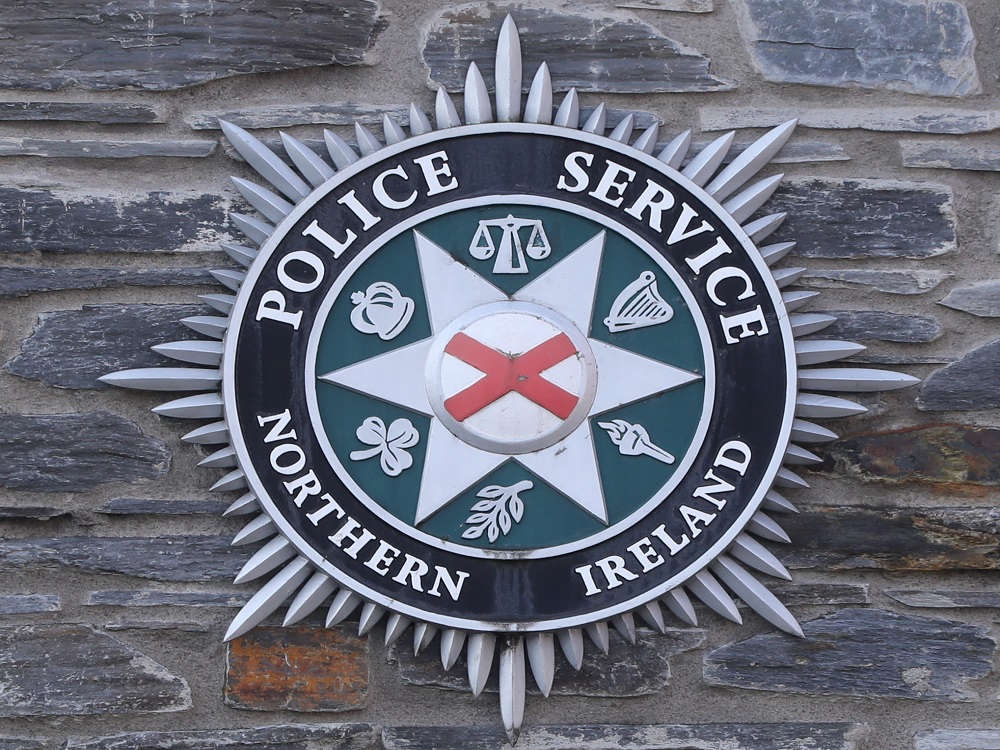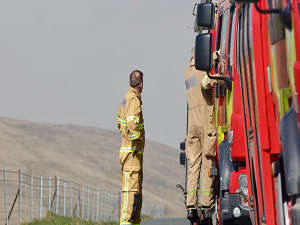
Jonathan McCambridge & Claudia Savage (PA)
The Police Service of Northern Ireland (PSNI) will become unrecognisable from the force envisaged in the Patten Report without sustainable funding, MPs have been told.
Pamela McCreedy, the PSNI chief operating officer, also said the force is set to shrink below 6,000 officers for the first time by March 2025.
In remarks to the Northern Ireland Affairs Committee, Ms McCreedy said the funding crisis facing policing in Northern Ireland is a marked contrast to the “uplift programme” for police forces in England and Wales.
In the absence of a devolved Executive at Stormont, Northern Ireland Secretary Chris Heaton-Harris set a budget for the region earlier this year.
The DUP is blocking the devolved institutions in Belfast in a protest against post-Brexit trading arrangements and senior civil servants are currently running public services in the region.
They have estimated that Stormont departments need hundreds of millions of pounds in extra funding to maintain public services at their current level this year.
Ms McCreedy told MPs the PSNI has now received its budget allocation from the Department of Justice.
She said the budget for 2023/24 saw the PSNI facing a reduction of 1.7%, which amounts to £12 million.
She added: “Combined with rising costs and pay inflation, we are now facing a substantial funding gap of around £107 million.”
Ms McCreedy said that even with a range of cost-saving measures, the PSNI is still facing an unaddressed funding gap of £38 million in the financial year.
She said: “I am concerned that, as things stand, even with our savings plan, it is difficult to see how further savings can actually be delivered in 2023/24.
“We have already slowed and paused recruitment, tightened control of future internal promotions and selections, and as a result the police service will shrink over the next number of years.
“Last year we reduced officer headcount by 300 to 6,700, again this year a further reduction will take us to 6,300, and if this trajectory is maintained we will see the police service go to under 6,000 officers by March 2025.
“That is significantly less than Government committed to in New Decade, New Approach of growing officer numbers to 7,500.
“It is a marked contrast with the uplift programme for police in England and Wales.
“These cuts are happening at a time of increasing demand.
“The Northern Ireland population is growing and investigations are becoming more complex.
“Serious crime and road deaths are increasing and the terrorist threat has recently been raised to severe, and police officers remain the primary target of that threat.”
Ms McCreedy said the police service would be “smaller, less visible, less accessible and less responsive”.
She added: “Attendance times will deteriorate, non-emergency calls will take longer and investigations will slow down and intelligence gathering reduce.
“We will do what we can to protect our neighbourhood policing function. It is the foundation to the community confidence, but this too will shrink.
“We are now at a crossroads, without intervention some very difficult and unpalatable decisions are going to be needed.
“Some of those decisions will take years to reverse.
“Without sustainable funding very soon, the police service is going to be unrecognisable from the service envisaged in Patten and indeed New Decade, New Approach.
“It will be unrecognisable from what people in NI have grown to expect and deserve.”
The PSNI was created following the Patten Report in 2001 which said the force should have 7,500 officers for peacetime policing.
The New Decade, New Approach agreement which restored Stormont in 2020 reaffirmed that commitment to 7,500 officers.
Ms McCreedy added that the shrinking number of officers in the PSNI would have an impact on local neighbourhood policing that the numbers would not be able to be increased again quickly.
“We can say in numbers, it’s effectively an officer a day is leaving the organisation,” she said.
“We have an ability to recruit up to the level to sort of keep our head count normally, so that is 350/400. The challenge with that is that even if someone did produce funding, it takes three years to replace the officers for every year that we lose.
“So you’re not recovering this quickly and that’s as much a concern for me.”
She added: “So we are committed to the function (of neighbourhood policing), the hours that it’s available, or indeed, the numbers of teams that are out there, undoubtedly will be fewer as we move forward.”
Also giving evidence to the committee was Geraldine Hanna, the Victims of Crime Commissioner-designate.
She said the system was “ close to breaking point in terms of justice”.
“So we have victims coming through our criminal justice system who are coming away from it saying that they wouldn’t report a crime again,” she said.
“I had one sexual violence victim recently who told me that the actual court process was 10 times worse than the actual experience of the assault itself.”
Ms Hanna told the committee that the number of cases of domestic and sexual abuse is increasing and funding has not been increasing alongside.
“What the PPS (Public Prosecution Service) are saying to us is that their caseload really… from 2015 they have seen an increase of around 57% in domestic abuse cases, 25% in sexual abuse cases,” she said.
“Those cases are very complex, they require a lot more digital material to be reviewed, and disclosure again is another issue for victims.
“But unlike their counterparts in the UK, and Ireland as well, no additional monies are being found to deliver on that. So that’s increasing the delays.”
She added: “So traditionally, Northern Ireland victims would have been faced, leaving aside the pandemic, double the amount of time of a wait for their case to reach court.”
Ms Hanna said that the median amount of time it takes for a Crown Court case to reach court was 535 days in 2021/2022, with sexual violence cases taking a median of 742 days to reach court.
Ms Hanna also stated that in many cases the wait could be even more lengthy.
“Now that’s the median, I see victims, tends to be around sexual violence, takes between three to five years,” she said.
“More recently, we had a case which was child sexual assault and physical assault, and child cruelty – took eight-and-a-half years for that man to get to court. So he reported in 2015 and that case just recently finished in our courts in 2023.
“I would be here all day trying to explain the impact both physically but psychologically that that wait has had on that individual, and that’s what our victims in Northern Ireland unfortunately are facing.”
The panel was asked by MP Jim Shannon how the cuts to policing would impact the safety of women and girls, in light of Northern Ireland having the second-highest rate of femicide in western Europe.
Ms Hanna said the situation regarding women’s safety was “dire”.
“The situation facing Northern Ireland with regards to safety of women is dire, and it’s really shocking that Northern Ireland has that reputation as this, the second-least safest place for women in Europe,” she said
She added: “There are initiatives underway to try and address the issue, but without the funding, it’s really, it’s mere rhetoric.
“And what we need to actually give women and girls that security is investment and funding in the services to deliver on that.
“So when we see services like women’s aid, who actually campaigned for that end violence against women and girls, having their core funding removed from health, it sends a contrary message to that of ‘we take this issue seriously’, so that is a big concern.”



 O’Neill writes to PM urging public inquiry into Sean Brown murder
O’Neill writes to PM urging public inquiry into Sean Brown murder
 Campaign to increase cancer awareness through pharmacies rolled out
Campaign to increase cancer awareness through pharmacies rolled out
 Concern over PSNI vehicles fleet, with 20% off road at worst point in 2023
Concern over PSNI vehicles fleet, with 20% off road at worst point in 2023
 Man released by police after Newry stabbing incident
Man released by police after Newry stabbing incident
 Firefighters tackle almost 150 wildfires across three days in Northern Ireland
Firefighters tackle almost 150 wildfires across three days in Northern Ireland